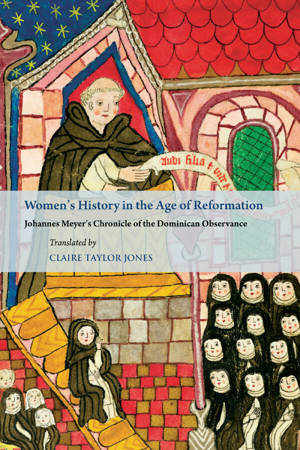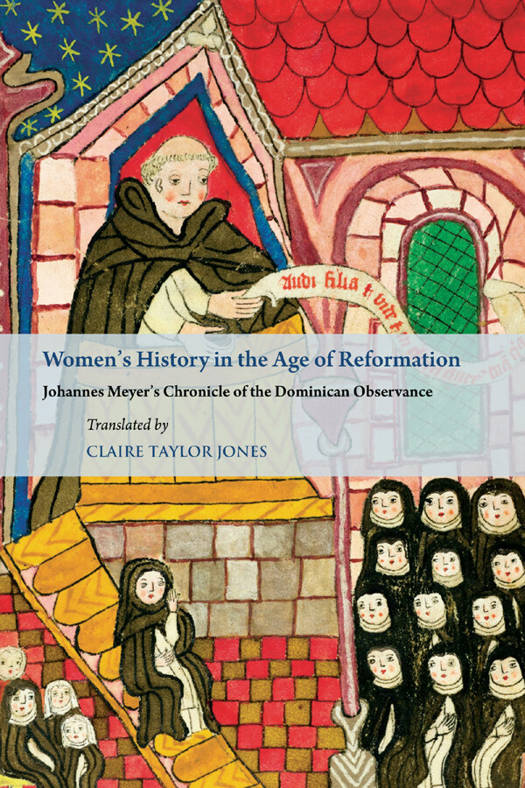
Bedankt voor het vertrouwen het afgelopen jaar! Om jou te bedanken bieden we GRATIS verzending (in België) aan op alles gedurende de hele maand januari.
- Afhalen na 1 uur in een winkel met voorraad
- In januari gratis thuislevering in België
- Ruim aanbod met 7 miljoen producten
Bedankt voor het vertrouwen het afgelopen jaar! Om jou te bedanken bieden we GRATIS verzending (in België) aan op alles gedurende de hele maand januari.
- Afhalen na 1 uur in een winkel met voorraad
- In januari gratis thuislevering in België
- Ruim aanbod met 7 miljoen producten
Zoeken
Women's History in the Age of Reformation
Johannes Meyer's Chronicle of the Dominican Observance
Johannes Meyer, Claire Taylor Jones
€ 37,10
+ 74 punten
Omschrijving
In his work The Book of the Reformation of the Order of Preachers, the Dominican friar Johannes Meyer (1422-1485) drew on letters, treatises, and other written records, as well as interviews, oral accounts, and his own personal experience, to record the blossoming of the Observant reform movement. The result is this sprawling, eclectic, yet curiously intimate account of the men -- but mostly of the women -- who devoted their lives to revitalizing the Dominican order in southern Germany. With his reliance on their accounts and archives and respect for their intellectual abilities and spiritual resolve, Meyer's treatment of medieval Dominican women provides a model from which today's historians stand to learn. The introduction contextualizes Meyer's celebratory work within a more objective historical background; it is followed by a full translation, making this remarkable history available to English-speaking readers for the first time.
Specificaties
Betrokkenen
- Auteur(s):
- Vertaler(s):
- Uitgeverij:
Inhoud
- Aantal bladzijden:
- 316
- Taal:
- Engels
- Reeks:
- Reeksnummer:
- nr. 58
Eigenschappen
- Productcode (EAN):
- 9780888443083
- Verschijningsdatum:
- 15/07/2019
- Uitvoering:
- Paperback
- Formaat:
- Trade paperback (VS)
- Afmetingen:
- 152 mm x 226 mm
- Gewicht:
- 476 g

Alleen bij Standaard Boekhandel
+ 74 punten op je klantenkaart van Standaard Boekhandel
Beoordelingen
We publiceren alleen reviews die voldoen aan de voorwaarden voor reviews. Bekijk onze voorwaarden voor reviews.









